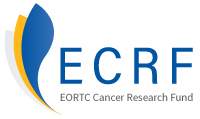World Cancer Day 2023: EORTC works towards “Closing the Care Gap”
The EORTC is proud to support World Cancer Day 2023, held every year on 4th February. This is an important moment to join forces with the Union for International Cancer Control (UICC), its members, partners, supporters and everyone around the world to raise awareness about the importance of ensuring that access to cancer treatment and care is equitable for all patients, whoever and wherever they are. On this occasion, the EORTC is proud to release a new video presenting the tremendous work of our organisation and dedicated Quality of Life Group in helping close the care gap.
Today, half of the global population still lacks access to the full range of essential health services, including accurate information and quality care services in prevention, diagnosis, treatment and support. In fact, in every part of the world, people who seek cancer treatment and care hit barriers such as income, race gender, sexual orientation and age. For example, 70% of cancer deaths – and more than 90% of cervical cancer mortality – occur in low-to-middle-income countries. Furthermore, while over 370 million indigenous people live across at least 70 countries worldwide, like other minority populations, due to racism, they often face serious barriers in accessing their countries’ basic health services, and, in turn, poorer outcomes.
How does the EORTC help “Close the Care Gap”
The EORTC has a long history of improving cancer treatment and care for all patients globally. Through dedicated clinical research and expansion in further regions of the world, the EORTC is committed to maintaining therapeutic progress for all. The EORTC is also actively working to close the care gap by delivering important datasets to optimise cancer treatments and move forward with a truly patient-centric approach.
Through the development of questionnaires to assess health-related quality of life of cancer patients, including for rare cancers, the EORTC Quality of Life Group strives to give them a voice, putting their experiences at the forefront and exploring the barriers that stand in their way of cancer care.
Prof. Eva Greimel, Clinical and Health Psychologist, Department of Gynecology, Medical University Graz (Austria), recalls that, “The first Quality of Life questionnaire for women with ovarian cancer was developed 20 years ago. Since the majority of these patients are diagnosed with advanced disease, quality of life is a critical treatment aspect to measure. The ovarian cancer module has been used in many clinical trials, so we have given these women a voice.” The EORTC will continue to aim to increase cancer survival, but also to improve quality of life of cancer patients, as well as cancer survivors.
About the EORTC Quality of life Group
The Quality of Life Group (QLG) strives to improve health-related quality of life (HRQoL) of cancer patients, through dedicated research and the use of HRQoL measures within cancer clinical trials and clinical practice. HRQoL constitutes an important aspect of cancer research and care: it gives a voice to patients, putting their experience at the forefront. The QLG is part of the European Organisation for Research and Treatment of Cancer (EORTC). For further information, please visit the Quality of Life Group website.
You can also help support EORTC’s game-changing clinical research to unleash scientific breakthrough and transform cancer patients’ lives. Learn how to GET INVOLVED, or Make a Contribution Now.







Get Social